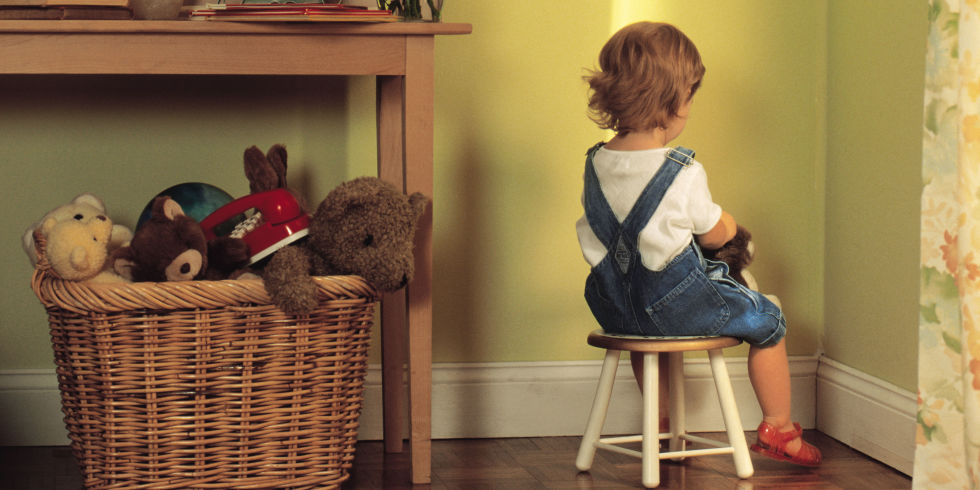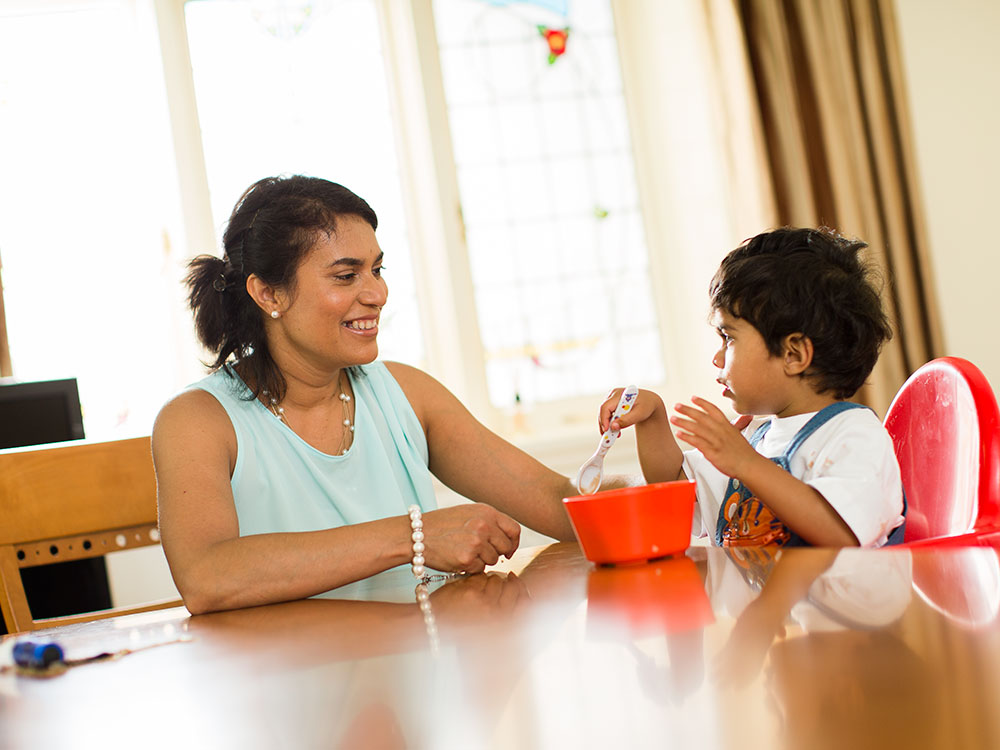Ten Strategies for Enhanced Parent-Child Communication
Enhance your parent-child communication: Engage fully and show interest. Have clear expectations and set boundaries. Encourage open dialogue and foster trust. Practice empathy through understanding perspectives. Establish daily communication routines for consistency. Use positive reinforcement and resolve conflicts constructively. Discover these powerful strategies for improving connection, understanding, and trust in your family.
Key Takeaways
- Engage fully in conversations to show genuine interest and create a safe space for open communication.
- Set clear expectations, boundaries, and consequences to establish mutual understanding and effective discipline.
- Encourage open dialogue by fostering trust, honesty, and active listening without judgment.
- Practice empathy through understanding perspectives, reflective listening, and validating emotions.
- Establish regular communication routines like daily check-ins, morning and bedtime talks, and weekly family meetings.
Active Listening Techniques

To enhance parent-child communication, practice active listening techniques by fully engaging in the conversation and demonstrating genuine interest in what your child is expressing.
Reflective listening is a vital tool that involves summarizing and repeating back what your child has said to show that you understand their feelings and thoughts. This technique not only helps in clarifying misunderstandings but also fosters a deeper connection between you and your child.
Validation techniques play an important role in active listening. By acknowledging and accepting your child’s emotions without judgment, you create a safe space for open communication. When your child feels heard and validated, they’re more likely to share their thoughts and feelings with you freely.
Setting Clear Expectations

Establishing clear expectations with your child is essential for fostering mutual understanding and cooperation within your parent-child relationship. Setting boundaries and employing effective discipline are key components of this process.
Clearly communicate your expectations to your child using simple language and concise instructions. By providing clear instructions, you help your child understand what’s expected of them, reducing confusion and misunderstandings. Consistency in enforcing consequences for both positive and negative behaviors is vital.
When setting expectations, make sure they’re realistic and age-appropriate, taking into account your child’s individual characteristics and developmental stage. Clearly outline the rules and consequences for breaking them, so your child knows what to expect.
Encouraging Open Dialogue

Effective parent-child communication begins with fostering an environment that encourages open dialogue between you and your child. Building trust and fostering a connection where your child feels safe expressing their thoughts and feelings is vital. Cultivating honesty by being transparent and authentic in your own communication can help promote understanding and strengthen the bond between you and your child.
Encouraging open dialogue involves actively listening to your child without judgment, showing empathy towards their perspective, and validating their emotions. Create a space where your child feels comfortable sharing their experiences, concerns, and ideas without fear of criticism.
Initiate conversations about various topics, ask open-ended questions, and be genuinely interested in what your child has to say. Encourage them to voice their opinions, even if they differ from your own, and approach discussions with an open mind.
Practicing Empathy and Understanding
Encouraging open dialogue with your child sets the foundation for practicing empathy and understanding in your interactions. To enhance your communication further, engaging in empathy exercises and understanding perspectives are key.
Empathy exercises involve putting yourself in your child’s shoes, trying to understand their feelings, and responding with compassion. Understanding perspectives requires acknowledging that your child’s viewpoint may differ from your own, and that’s okay.
Another crucial aspect of practicing empathy and understanding is through reflective listening. This involves not only hearing what your child is saying but also understanding the emotions behind their words. Reflect back what you hear to show that you’re actively listening and trying to comprehend their feelings.
Additionally, emotional validation is essential. Acknowledge your child’s emotions, even if you may not agree with their perspective. Validating their feelings helps them feel heard, respected, and understood, strengthening your parent-child bond through empathetic communication.
Establishing Regular Communication Routines
Consistency in communication patterns with your child fosters a strong foundation for nurturing your relationship. Daily check-ins are a great way to stay connected with your child’s daily experiences, thoughts, and feelings. These brief moments of sharing can help strengthen your bond and show your child that you’re always there to listen.
Incorporating morning routines into your daily schedule can provide a structured time for communication. Whether it’s discussing plans for the day ahead or simply sharing a few moments of quality time together, starting the day with open communication sets a positive tone.
Similarly, bedtime talks offer a calm and intimate setting for deeper conversations. It’s a time when your child may feel more relaxed and open to discussing any worries, successes, or simply reflecting on the day.
Additionally, weekly family meetings can be a valuable tool for setting goals, addressing concerns, and fostering a sense of unity within the family. By establishing these regular communication routines, you create opportunities for meaningful interactions that can strengthen your parent-child relationship.
Using Positive Reinforcement

When it comes to enhancing parent-child communication, utilizing positive reinforcement can make a significant impact. By offering praise for your child’s efforts, you can motivate them to continue engaging in open dialogue with you.
Encouraging this open and honest communication sets a foundation for a strong and trusting relationship with your child.
Praise for Effort
Utilizing positive reinforcement by praising your child’s efforts can greatly enhance parent-child communication. When you acknowledge the hard work and dedication your child puts into a task, it not only boosts their self-esteem but also fosters a growth mindset. By focusing on the effort rather than just the outcome, you’re encouraging your child to persist in the face of challenges and to see failures as opportunities for growth.
Positive reinforcement through praising effort can help children develop resilience and a willingness to tackle new challenges. It sends the message that you value their hard work and perseverance, regardless of the final result.
This form of encouragement creates a supportive environment where your child feels motivated to keep trying and improving.
Encouraging Open Dialogue
Encouraging open dialogue with positive reinforcement fosters a nurturing environment for effective parent-child communication. Building trust is vital in creating a space where honesty can thrive. By using positive reinforcement, you can show your child that their thoughts and feelings are valued, leading to a stronger bond built on mutual respect.
When your child expresses themselves openly, it’s essential to acknowledge their vulnerability with care and understanding. This acknowledgment fosters a sense of security, encouraging them to continue sharing their thoughts without fear of judgment.
Positive reinforcement in the form of affirming statements such as ‘I appreciate you sharing that with me’ can go a long way in reinforcing this open dialogue.
Resolving Conflicts Constructively

When resolving conflicts constructively with your child, remember that active listening techniques can help you understand their perspective better.
Setting clear boundaries is essential in maintaining respect and discipline during disagreements.
Encouraging open dialogue fosters trust and collaboration in finding solutions together.
Active Listening Techniques
You can effectively enhance parent-child communication by practicing active listening techniques to resolve conflicts constructively. Active listening involves more than just hearing; it requires full engagement and understanding. Pay attention to nonverbal cues like body language and tone of voice.
Reflective responses are vital; paraphrase what your child says to show you’re actively listening and understanding their perspective.
Validation is essential during conflicts. Acknowledge your child’s feelings and show empathy towards their emotions. Let them know that their feelings are valid and important to you.
Additionally, asking clarifying questions can help clear up misunderstandings and make sure you grasp the root of the conflict accurately.
Setting Clear Boundaries
To enhance parent-child communication and resolve conflicts constructively, establishing clear boundaries is key in guiding interactions and expectations within the relationship. Consistent discipline plays a crucial role in setting these boundaries. By consistently enforcing rules and consequences, children learn what’s expected of them and understand the repercussions of their actions. This clarity helps prevent misunderstandings and reduces conflicts between parents and children.
Healthy boundaries also contribute to a harmonious parent-child relationship. Clearly defined boundaries help children feel secure and understand the limits of their behavior. It fosters a sense of respect and teaches children to respect not only their parents’ boundaries but also those of others.
Setting boundaries provides a framework for open communication and constructive conflict resolution. When both parents and children understand their roles and limits within the relationship, communication becomes more effective, leading to fewer misunderstandings and conflicts.
Encouraging Open Dialogue
Encouraging open dialogue between parents and children is vital for resolving conflicts constructively and strengthening the parent-child relationship. Family meetings provide a structured platform where everyone can express their thoughts and feelings openly. This practice fosters trust building as each member feels heard and valued.
By engaging in shared experiences, such as fun outings or meaningful activities, you create opportunities for bonding and understanding each other better.
During conflicts, it’s important to offer emotional support to your child, acknowledging their feelings and perspectives. Encourage them to express themselves honestly and without fear of judgment. Remember, effective communication is a two-way street; listen actively and validate their emotions.
Frequently Asked Questions
How Can Parents Adjust Communication for Different Age Groups?
When adjusting communication for different age groups, consider developmental stages and effective communication. Tailor your approach to account for age differences. Adapting your style to suit the needs and understanding of each child is crucial.
What Role Does Cultural Background Play in Communication?
To enhance parent-child communication, consider cultural sensitivity. Your cultural background influences communication styles. Understanding nonverbal cues and overcoming language barriers are key. Embrace diversity. Respect differences, adapt your approach, and foster understanding in interactions.
How Can Parents Address Sensitive Topics With Their Child?
To address sensitive topics with your child, start by fostering open dialogue. Listen actively, validate their feelings, and provide a safe space for discussion. Build trust over time through honesty, empathy, and respect for their perspective.
What Are Effective Ways to Involve Technology in Communication?
When involving technology in communication, it’s essential to set screen time boundaries for digital safety. Consider organizing virtual family meetings and exploring online therapy options to enhance parent-child interactions and address sensitive topics effectively.
How Can Parents Ensure Their Child Feels Heard and Understood?
To guarantee your child feels heard and understood, practice active listening by giving full attention, making eye contact, and using validation techniques like summarizing their feelings. This fosters a deeper connection and promotes open communication.
Conclusion
To sum up, implementing these strategies can greatly enhance communication between parents and children. By actively listening, setting clear expectations, and encouraging open dialogue, you can foster a strong and healthy relationship with your child.
Remember to practice empathy, establish regular communication routines, and resolve conflicts constructively. Using positive reinforcement will also help reinforce positive behaviors and strengthen your bond with your child.
Keep these tips in mind to create a positive and supportive environment for effective parent-child communication.

Chad Adan Kace, a young dad from Vermont, shares his parenting journey with a touch of humor and lots of love. Father to a lively baby, he explores the joys and challenges of fatherhood through his stories.







